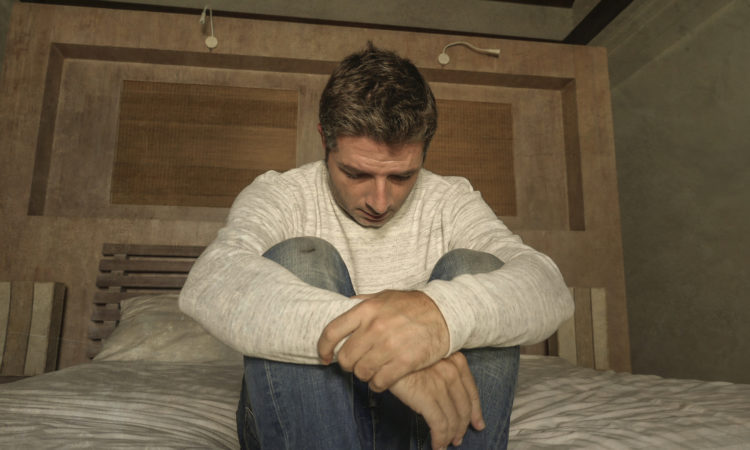
It’s the emotional health risk of Covid-19.
Social isolation is not just boring, it can lead to disease and suboptimal health just by itself.
And it was already far too common in our society, especially among the elderly.
About 28% of older people in the United States live alone – around 13.8 million people. Not all those people feel lonely and isolated. Until Covid-19, many of them were socially active and engaged with family, friends and their community.
However, there’s no doubt the current period is going to magnify the problems of social isolation.
In one study of 3.4 million people, those living alone had 32% increased risk of early death. For people who isolated themselves from others, the risk of early death was 29% higher. And it was 26% higher for people who felt very lonely.
Before Covid-19, the problem was usually getting older people to leave their homes – if they could – and make friends.
Now, at least for the duration of the pandemic, the obvious solutions to social isolation are too risky.
The older people most at risk from loneliness are also most at risk from Covid-19. Therefore, a party at the senior center is not the answer.
The Health Risks of Emotional Isolation are Also Dangerous
They include:
* Higher stress
* Depression and suicide
* Higher risk of heart disease, Alzheimer’s, high blood pressure
* Eating disorders
* Sleep problems
* Alcohol and drug abuse
* The common cold
It’s equivalent to smoking 15 cigarettes per day.
In 2007, Steve Cole published the results of a study he did on the effect of loneliness on the white blood cells of lonely people. Cole is a professor of medicine, psychiatry and biobehavioral sciences at the UCLA School of Medicine.
He found the white blood cells of lonely people were in a state of high excitement, inflamed, as though responding to an infection.
Although inflammation is necessary for short-term struggles against infections, chronic inflammation breaks down our tissues and strikes at our immune systems.
In other words, loneliness actually weakens the cells of your immune system – the opposite of what you want during a pandemic. You might avoid Covid-19 only to fall sick from a flu, cold or other common infectious disease microbes.
Our bodies perceive the emotion of loneliness as a threat, and so we react as though attacked by a tiger or a coronavirus.
Add in the stress of worrying about loved ones, people around the world and the economy, and this pandemic is going to cause a lot more death and disease than the virus itself.
Loneliness Costs Us All
Researchers at the AARP Public Policy Institute carried out a study with Stanford and Harvard universities. They found loneliness cost Medicare $7 billion per year, mostly by making hospital stays longer.
Could Lowering Inflammation Reduce Loneliness?
One scientist intends to find out by giving lonely people the anti-inflammatory drug Aleve for four weeks.
However, I can’t recommend such drugs, especially now. A drug similar to Aleve – Ibuprofen – appears to increase the risk of dying of Covid-19.
However, there are drug-free ways to lower chronic inflammation:
1. Eat many more fruits and vegetables
Strongly plant-based diets help lower chronic inflammation.
2. Eat a teaspoon of turmeric every day.
That’s the yellow spice in mustard and Indian foods. It has powerful anti-inflammatory effects on your body.
3. Cut down on inflammatory foods
They include processed foods, refined grains and sugar.
4. Get light exercise on a daily basis
That includes walking around. It’s safe to walk outside as long as you stay away from crowds of people.
Throughout your day, make a point of getting off your duff at least every 30 minutes. Stretch and walk around.
Don’t spend all day glued to the TV set.
5. Meditate
Or otherwise, relax to lower your stress.
6. Write a Journal
Reflect on your mistakes. Remember your achievements. Relive your triumphs and the happy times.
If you don’t want to write, do a video journal. Sit in front of a video camera and tell your stories.
What would you like your great-great-grandchildren to know about your life – your adventures, struggles and accomplishments?
7. Stay Active Online
I never thought I’d encourage people to make friends on Facebook instead of in real life, but it’s better than passively absorbing movie after movie.
I’m grateful Facebook has allowed me to get back in touch with many of my childhood friends and a distant branch of my family.
Search out websites and forums about topics you’re interested in, whether that’s model railroads, bird watching or your local football team. You can interact with people, learn more and answer questions.
If you haven’t already, download and install Skype. It allows you to talk to and see people around the world at no cost except your Internet connection.
8. Telephones Still Work Too
Call people up – especially that person you’re still holding a grudge against after 50 years. Or you believe they’re holding a grudge against you for what happened that night.
Does it really matter now?
9. Pets
Rescue a dog or a cat from the local shelter. Love and care for a dog, and you’ll always have a friend.
10. Do Something
Frankly, lonely people are self-centered people.
You need to start thinking and caring about somebody else.
Normally I’d suggest the obvious – volunteering to help other people.
But, even without leaving the safety of your home, do something.
Knit a sweater? Build a birdhouse? Help a grandchild with their homework? Advise a local small businessperson how to survive in a tough economy?
When you show you care about someone else, other people will naturally begin to care more about you.
It may not even be the person you helped directly.
Funny thing how that works.
https://www.scripps.org/news_items/4232-six-keys-to-reducing-inflammation
https://www.ncbi.nlm.nih.gov/pmc/articles/PMC4681688/
https://www.brunet.ca/en/health/health-tips/loneliness-among-the-elderly-preventing-isolation/
https://www.nia.nih.gov/news/social-isolation-loneliness-older-people-pose-health-risks







